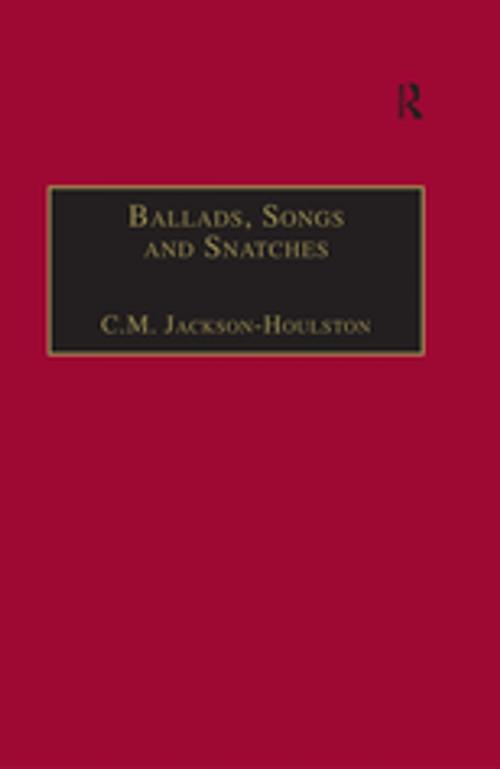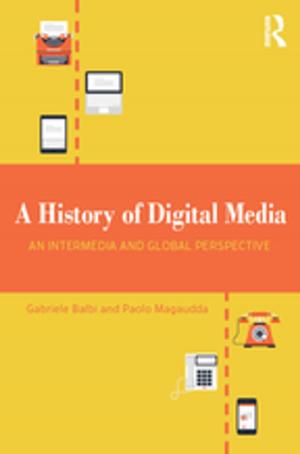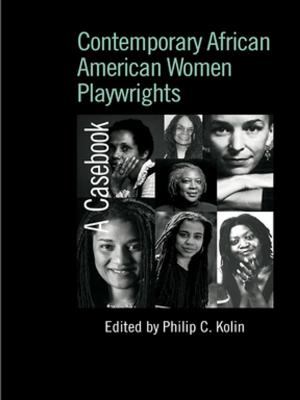Ballads, Songs and Snatches
The Appropriation of Folk Song and Popular Culture in British 19th-Century Realist Prose
Fiction & Literature, Literary Theory & Criticism| Author: | C.M. Jackson-Houlston | ISBN: | 9781351956055 |
| Publisher: | Taylor and Francis | Publication: | December 5, 2016 |
| Imprint: | Routledge | Language: | English |
| Author: | C.M. Jackson-Houlston |
| ISBN: | 9781351956055 |
| Publisher: | Taylor and Francis |
| Publication: | December 5, 2016 |
| Imprint: | Routledge |
| Language: | English |
As a book on allusion, this has interest for both the traditional literary or cultural historian and for the modern student of textuality and readership positions. It focuses on allusion to folksong, and, more tangentially, to popular culture, areas which have so far been slighted by literary critics. In the nineteenth century many authors attempted to mediate the culture(s) of the working classes for the enjoyment of their predominantly middle-class audiences. In so doing they took songs out of their original social and musical contexts and employed a variety of strategies which - consciously or unconsciously - romanticised, falsified or denigrated what the novels or stories claimed to represent. In addition, some writers who were well-informed about the cultures they described used allusion to song as a covert system of reference to topics such as sexuality and the criticism of class and gender relations which it was difficult to discuss directly.
As a book on allusion, this has interest for both the traditional literary or cultural historian and for the modern student of textuality and readership positions. It focuses on allusion to folksong, and, more tangentially, to popular culture, areas which have so far been slighted by literary critics. In the nineteenth century many authors attempted to mediate the culture(s) of the working classes for the enjoyment of their predominantly middle-class audiences. In so doing they took songs out of their original social and musical contexts and employed a variety of strategies which - consciously or unconsciously - romanticised, falsified or denigrated what the novels or stories claimed to represent. In addition, some writers who were well-informed about the cultures they described used allusion to song as a covert system of reference to topics such as sexuality and the criticism of class and gender relations which it was difficult to discuss directly.















